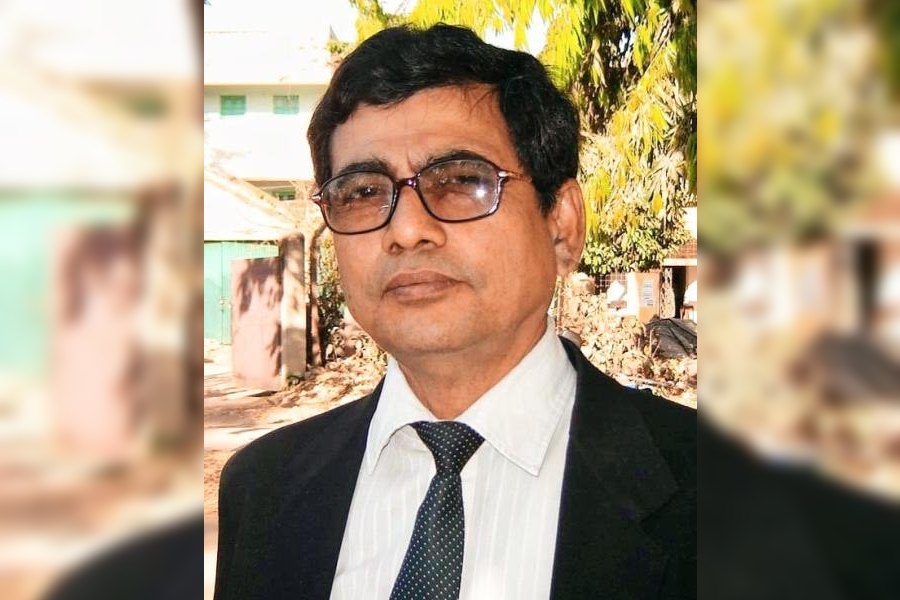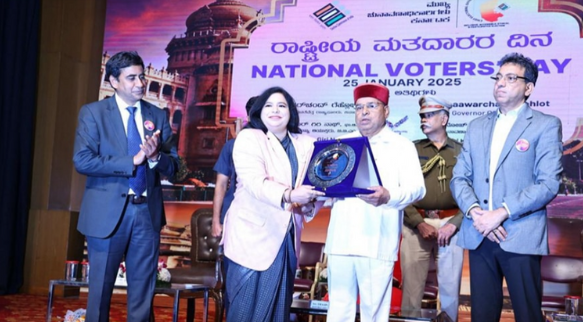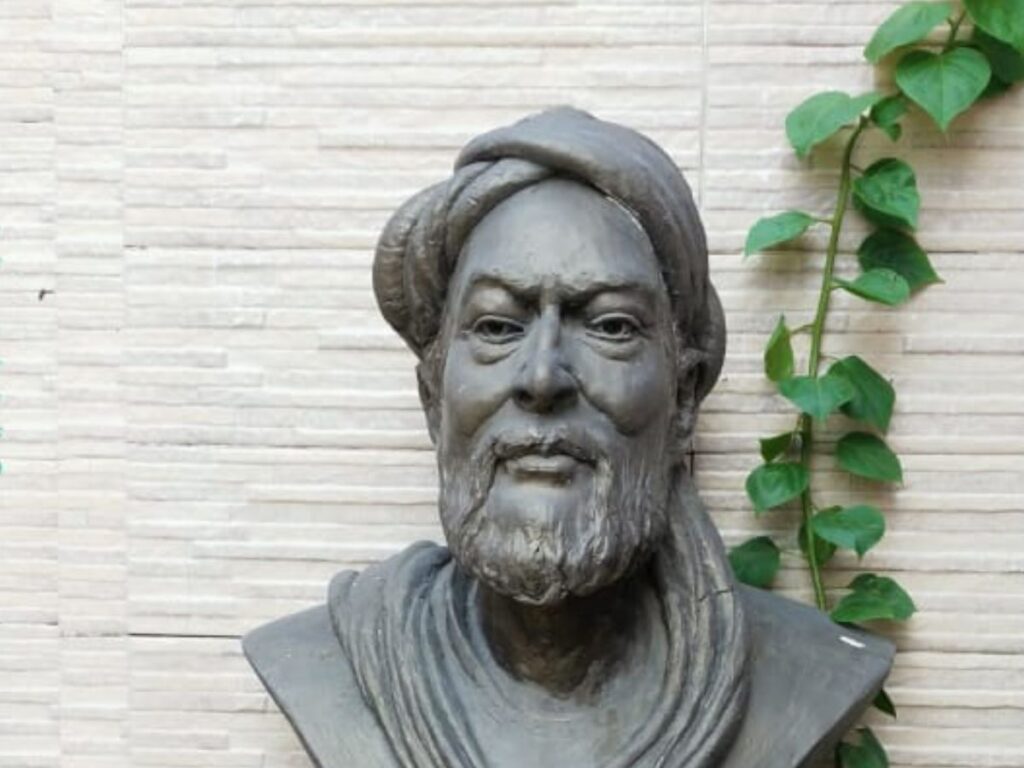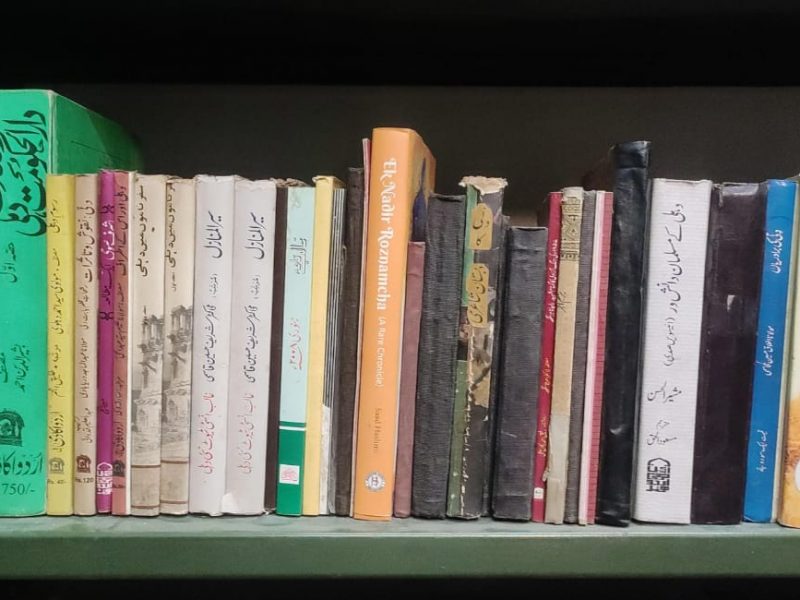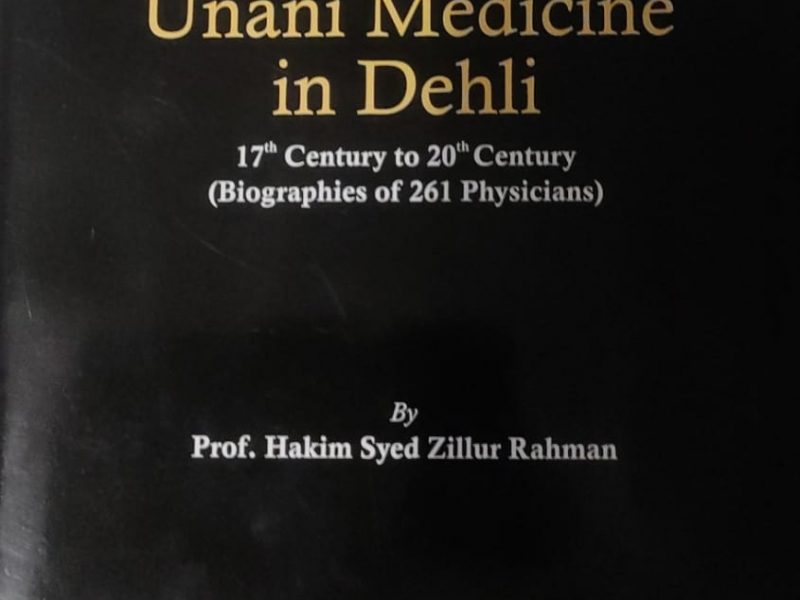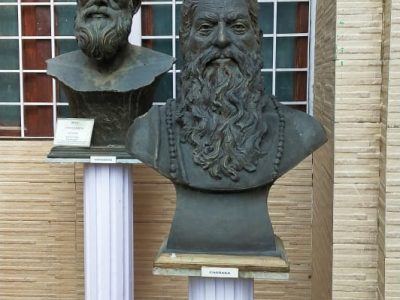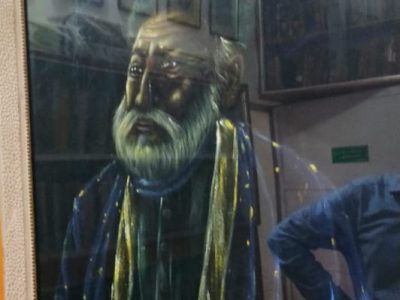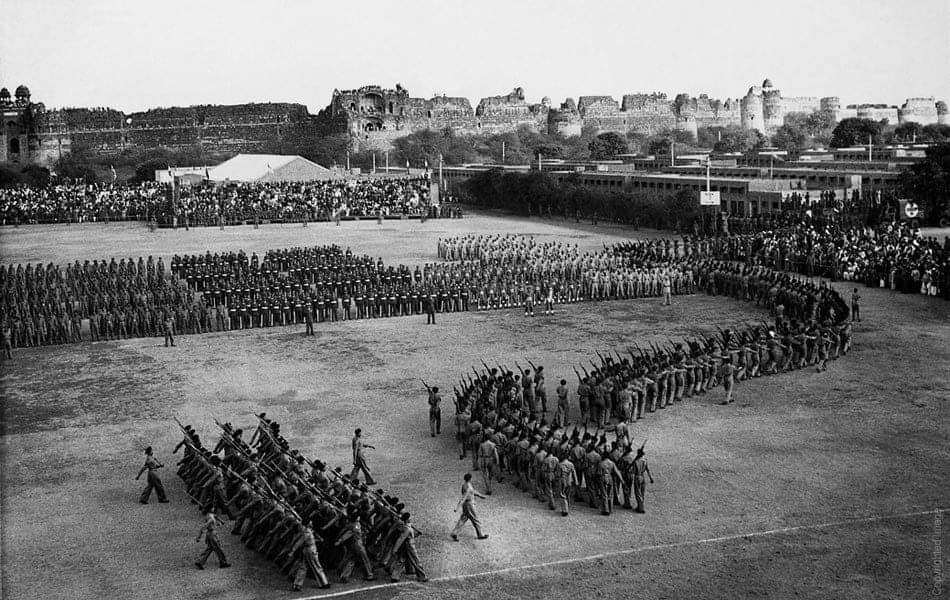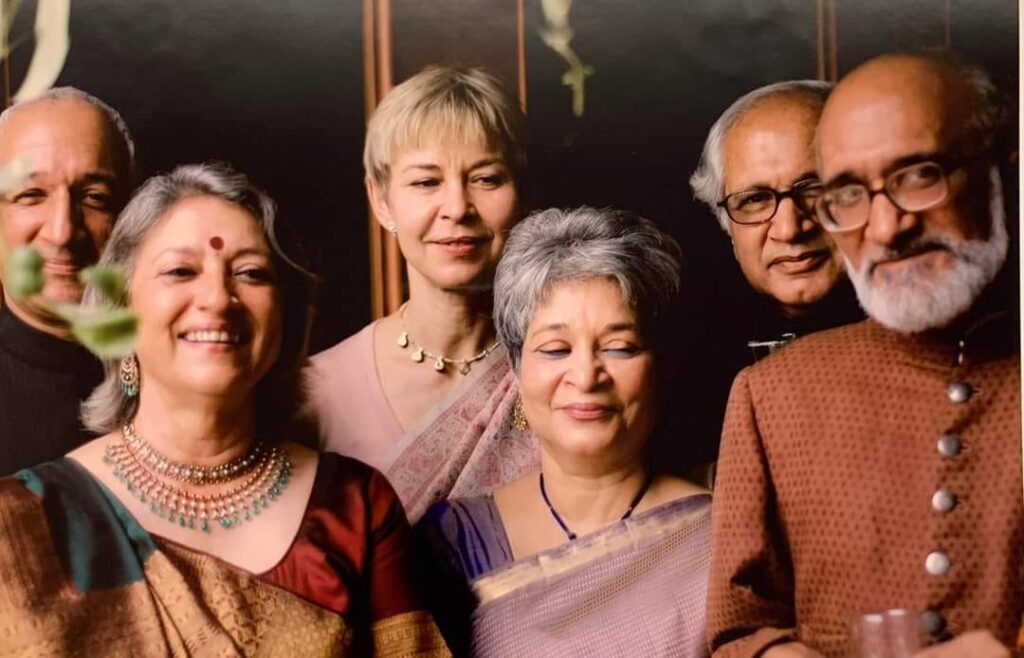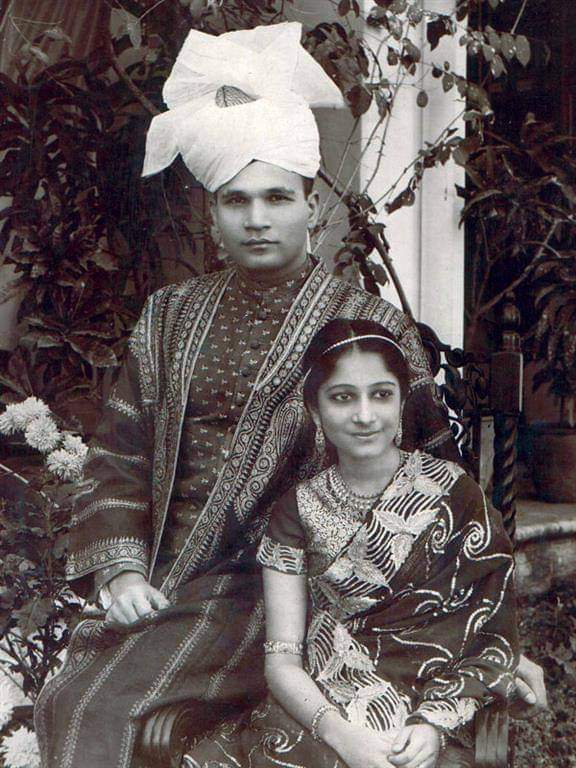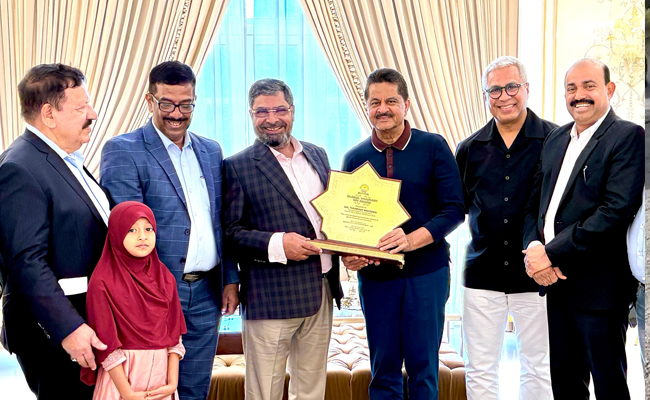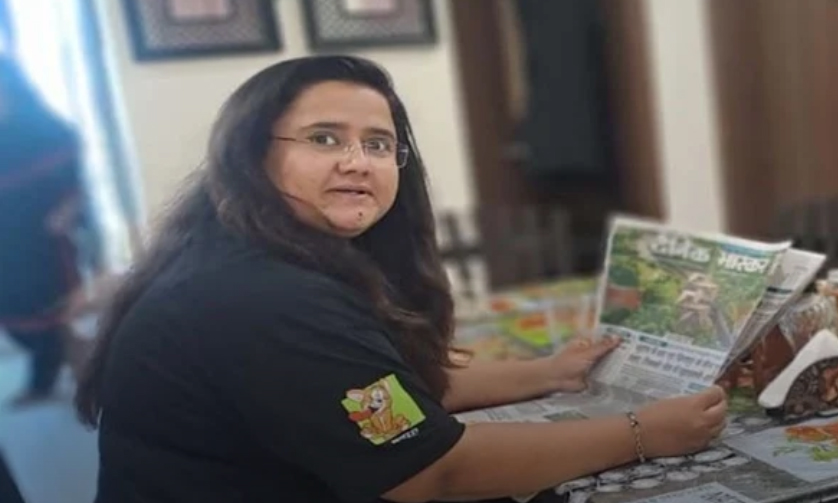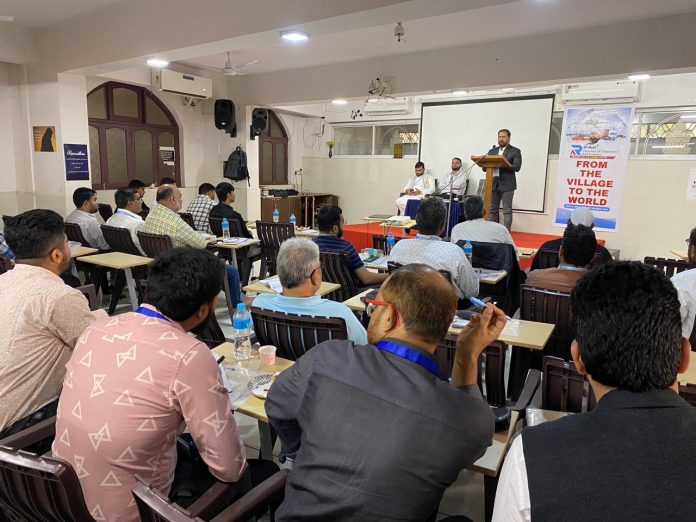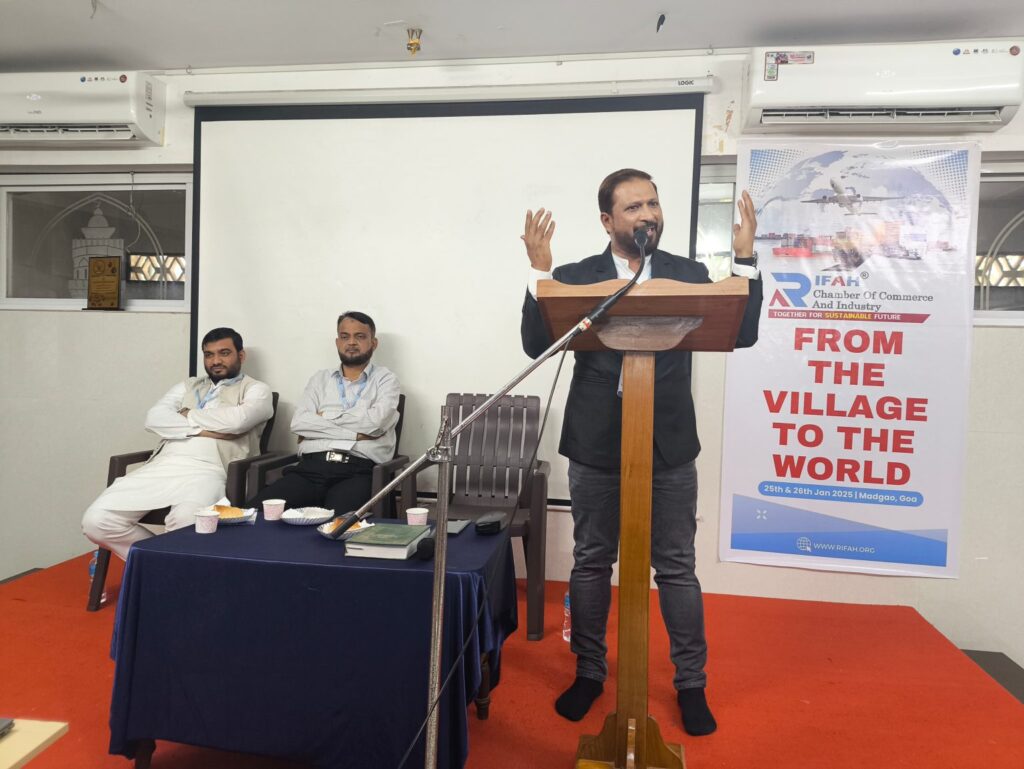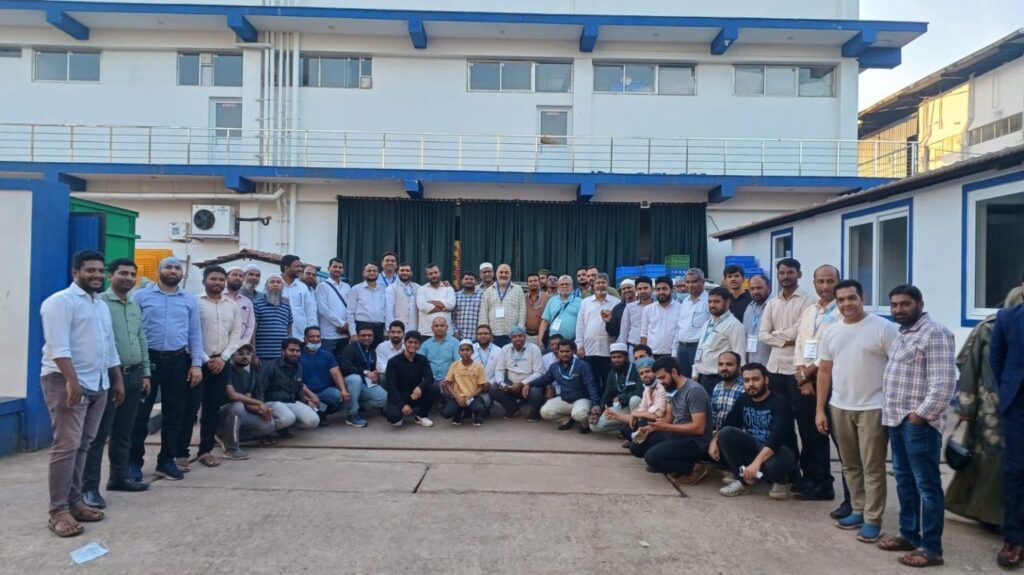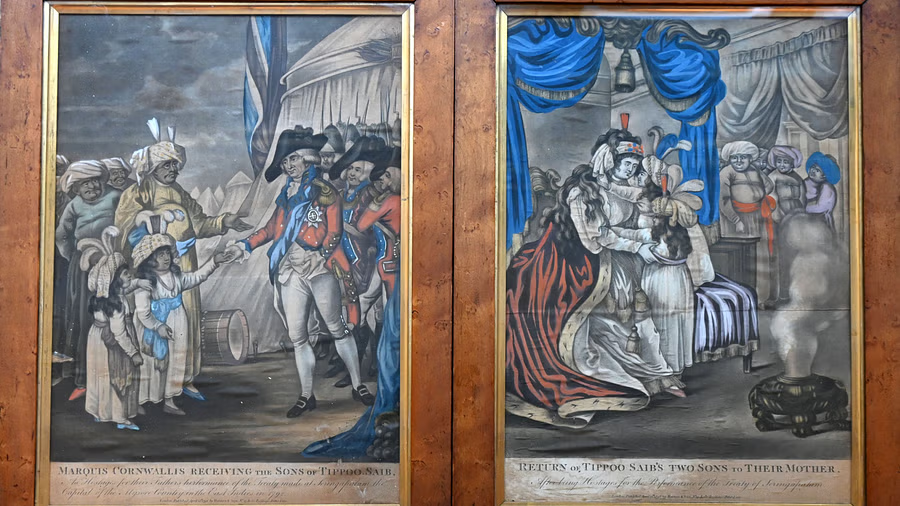Okhla, DELHI :
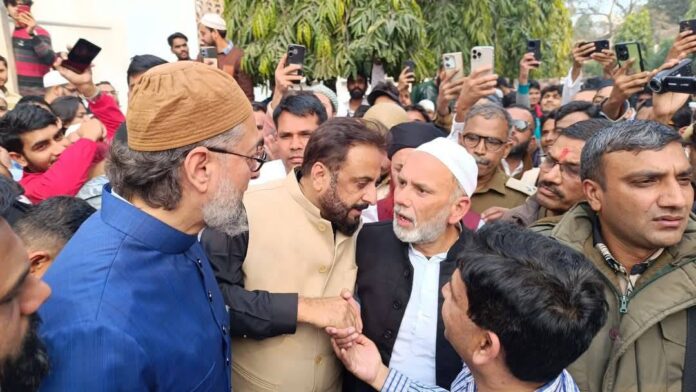
Shifaur Rehman with AIMIM leaders
New Delhi :
The air is thick with political tension in the bustling lanes of Delhi’s Okhla constituency as the assembly elections in the city draw near. A determined and vocal leader, Nooreen Fatima rallies the crowd with the chant, “Bolega Okhla, Jeetega Insaf (Okhla will speak, justice will win).”Fatima is campaigning for her husband, Shifa Ur Rehman, an outspoken anti-Citizenship Amendment Act (CAA) activist, who has been behind bars since April 2020. Accused of being involved in a conspiracy to incite riots in Northeast Delhi, he faces serious charges, but his supporters believe the allegations are baseless.
Steadfast in her mission, Fatima tells the voters, “We could not get justice in the courts, but we trust you to deliver it at the ballot box.” Her voice reverberates through the streets and seemingly resonates with the people of Okhla who still seek justice for what they perceive as wrongful incarcerations.Talking to TwoCircles.net, Fatima explained why her husband decided to contest the elections despite his lack of political experience and imprisonment for five years. “We are a part of this society. Politics is part of our life,” she said. “Although Shifa-ur-Rahman has no political background, he has always had an interest in politics. We are not gullible people. It is not that Shifa does not understand the political landscape. In the past, he was very much involved.”
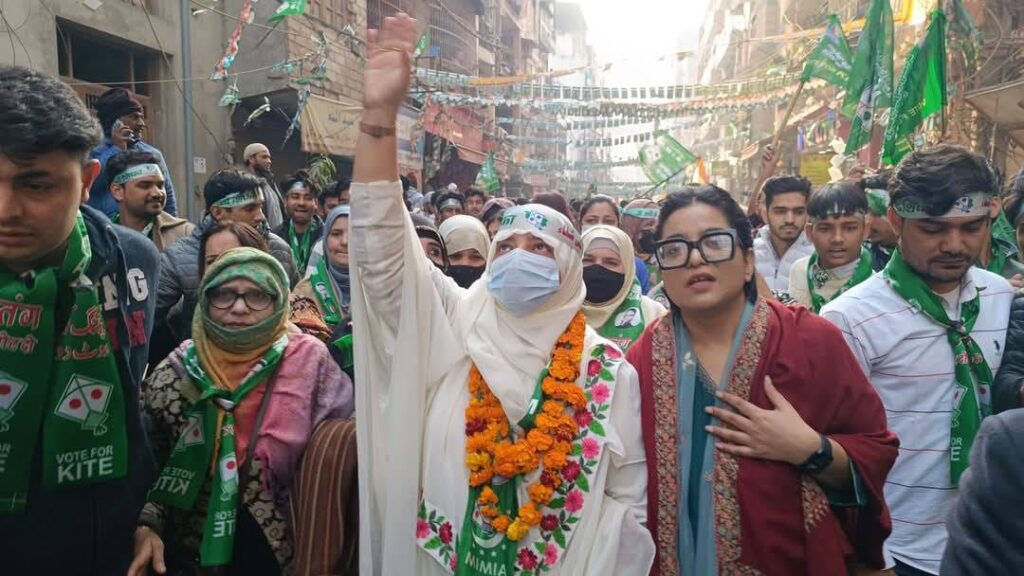
Nooren Fatima campaigning
She continued, “Owaisi Sahab took a risk by giving us a ticket, something no big party would do. They want big faces, not freshers. But Owaisi took that risk, and now people are learning about Shifa. This is a platform for us, and for that, we are grateful.”
Often seen leading the charge, Fatima passionately addresses the core issues that have plagued the community. “The education system in Okhla has failed us. The healthcare system is a mess. The government promises a lot but delivers little. People need better schools, better hospitals and better opportunities. We will fight for these rights.”
She argues that the local government’s “neglect” has only exacerbated the community’s problems, with basic infrastructure such as roads and drainage systems still in disrepair.
She has a conviction in fighting for her husband. “We cannot just sit back and watch as our future is decided by others,” she said. “It is time for people to rise and take charge. Our fight is not just for Shifa; it is for all of us who have been wronged.”
Rehman’s candidacy, endorsed by All India Majlis-e-Ittehadul Muslimeen (AIMIM) chief Asaduddin Owaisi, has apparently stirred the community.
Once a stronghold for the Congress, the Okhla constituency has shifted to the Aam Aadmi Party (AAP) in recent years, thanks to the party’s emphasis on local issues like education and healthcare. Many now believe AAP is the best hope for keeping the Bhartiya Janata Party (BJP) from gaining ground in the area.
Reflecting on the bigger picture of the elections, Fatima emphasises the need for unity and focus. “This is not just about our family, it is about the future of the community. We need leaders who will fight for justice, for education, for healthcare, for our rights,” she says. “I appeal to the people of Okhla to consider who is genuinely fighting for them and who is merely playing political games. We have had enough of broken promises. Now is the time for real change.”
Always direct, Fatima also critiques the state of politics in the region. “I want to appeal to the people to vote wisely. Take into consideration how the candidate addresses your issues. Making emotional speeches and issuing hollow statements will not resolve the various issues. They will be resolved if your issues are genuinely taken into account. Think about Shifa’s sacrifices, his nature, and the difficulties he has faced.”
Meanwhile, in Mustafabad, another Muslim-majority constituency in North East Delhi, the mood is similarly charged. The area still feels the scars of the 2020 riots, where 53 lives were lost, 38 of them Muslims, and the subsequent arrests of students and activists.
Tahir Hussain, a former AAP councillor, remains behind bars. He is accused of murder and riot-incitement. His wife, Shama Anjum, has stepped up to carry his political torch, campaigning fiercely for his innocence. “The allegations against him are baseless,” she asserts, drawing from her personal pain and conviction. “He is not a rioter. He is a victim.”
Out on a six-day custody parole granted by the Supreme Court, Hussain is campaigning in his constituency, where he is contesting as an AIMIM candidate. “I had announced six months ago that I will contest from Mustafabad. All the parties knew this… they all announced their candidates just a few days ago. None of them reached out to me. The AAP and the Congress could have, but they were scared that the BJP will make this a poll issue,” he tells TwoCircles.net.
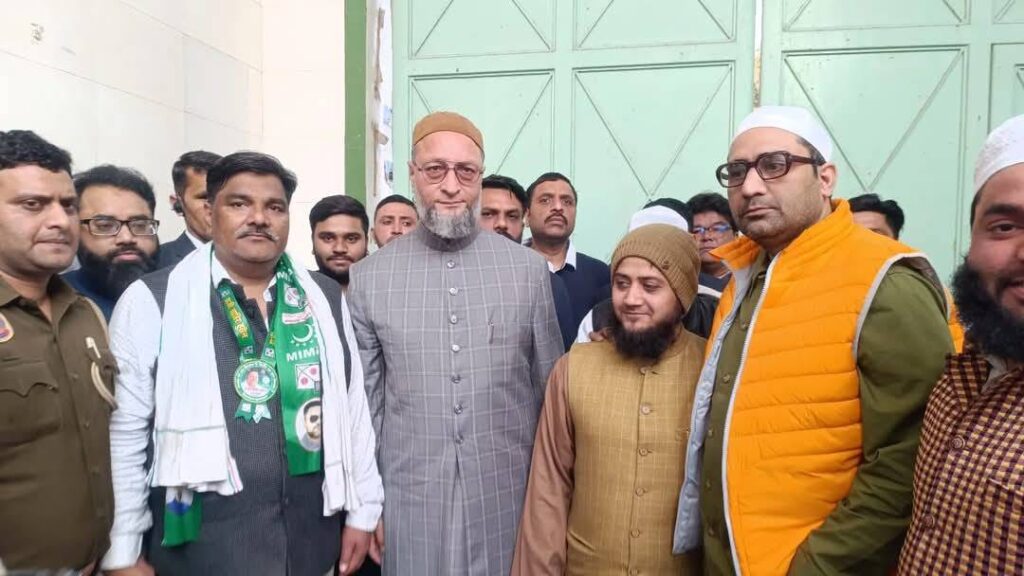
Tahir Hussain with Owaisi and others from AIMIM
Hussain expresses gratitude towards the AIMIM, saying, “I am grateful to Owaisi that he gave me a chance. He is a seasoned politician… Parties that I spent time with, I shared meals with and campaigned for, abandoned me. But an unknown person showed faith in me. He hugged me and fielded me on party symbol.”
While Hussain faces political isolation from his former allies, his personal connections with Mustafabad are deep-rooted. “I have grown up here, got married and had children in Mustafabad. I love my people and rule their hearts,” he says. Despite the challenges, he remains confident in his campaign and asserts that he is “banking on 30 years of hard work”.
Further criticising the AAP, he says, “For the last 10 years, Kejriwal has not even shown his face to us. The people will not fall for their trap this time. There is so much work to be done here.”
As posters demanding justice for Hussain adorn the walls of Mustafabad, the political landscape becomes more complex. The AAP has fielded Adil Ahmad Khan, promising a more developed and educated constituency, but criticism lingers over the party’s alleged failure to adequately address post-riot rehabilitation. Attempting a comeback with Ali Mehdi, another local leader, the Congress is challenging the AAP’s grip on the area, while the BJP’s candidate, Mohan Singh Bisht, aims to consolidate Hindu votes by focusing on “justice” for riot survivors within the Hindu community.
The AIMIM’s decision to field Rehman and Hussain, both tied to the 2020 riots, has ignited intense emotional support among Muslim voters, but it also raises concerns about vote fragmentation.
The stakes have never been higher for Okhla, Mustafabad, and the broader political landscape in Delhi. The February 5 elections will not only be a contest of power but a struggle for justice, dignity and the future direction of the city’s diverse communities.
source: http://www.twocircles.net / TwoCircles.net / Home> India News> Indian Muslims / by TwoCircles.net Staff Reporter / February 01st, 2025
